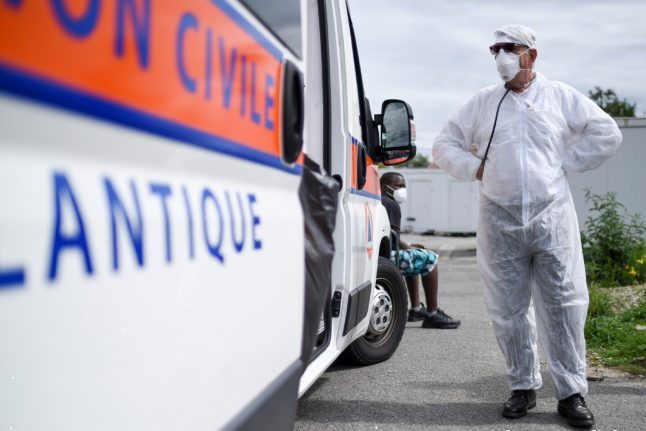Authorities suspect the virus was spread after dozens of people attended a gathering after funeral service in contravention of coronavirus lockdown restrictions.
According to France Blue radio the funeral service was attended by 20, the maximum allowed under current restrictions but a gathering at the family house after the service “was attended by tens of people”.
The cases emerged after one person in Dordogne tested positive for the virus on April 30th in the small village of Vegt.
Health authorities for the Nouvelle Aquitaine region (ARS) tracked the patient's movements and the people they had been contact with.
It emerged during their investigation that the patient had attended the funeral service and gathering in the village of Eglise-Neuve-de-Vergt at the end of April.
IN PICTURES: France prepares to lift its lockdown
After testing more than 100 people, authorities found eight confirmed cases of the virus. Each of those who tested positive had no symptoms of the virus and none are considered in a serious condition.
Dordogne like much of the south west of France has largely been free of the epidemic which has mainly hit the Paris region and northern and eastern France.
But the small outbreak comes just days before France will begin easing restrictions, put in place on March 17th.
Local radio prefect of Dordogne Frédéric Périssat denounced the breach of lockdown restrictions, telling media outlet BFM TV “this is really an illustration of what we don't want in the weeks to come”.
“It's a case of slackening off,” said the prefect.
Authorities in Dordgone are continuing to trace anyone who may have had contact with those who were infected, with full results to be known on Sunday.
Since March 17th French people have been confined to their homes and only allowed to go outside for essential reasons such as shopping. All kinds of gatherings have been banned and even after May 11th they will be limited to 10 people in public and private as the government bids to prevent a second wave of the epidemic.
Authorities in Dordogne are due to hold a press conference on Saturday afternoon to reveal more details of the cases.



 Please whitelist us to continue reading.
Please whitelist us to continue reading.
We have the same problem in our village. The people concerned seem to think the laws don’t apply to them and it’s just a laugh.